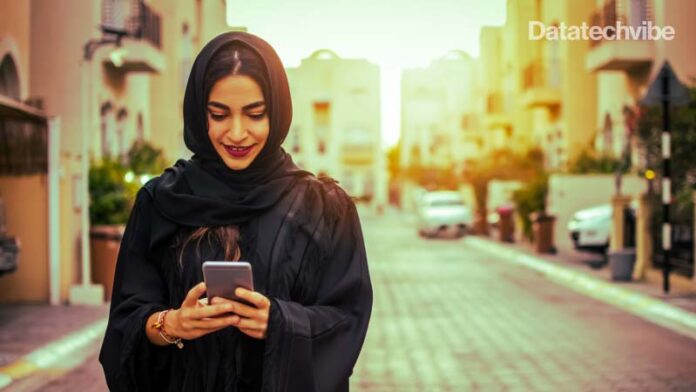The COVID-19 pandemic has significantly impacted the way people live, connect, shop and discover. This was more evident during Ramadan, a period of introspection and celebration for nearly 2 billion people. During Ramadan, people want to come together, whether virtually or socially distanced, to share their joy with loved ones. Despite inevitable differences to recent years, we will see the emergence of new discovery and shopping behaviours.
To better understand the behaviours of people who observe Ramadan and who shop for this season, Facebook IQ, Facebook’s insights and research division, in partnership with YouGov, a global public opinion and data company, has unveiled findings of a study conducted during Ramadan 2020, with over 17,000 respondents across eleven countries including the Kingdom of Saudi Arabia. Approximately 1,500 interviews were completed with samples that were representative of the adult online population across age, gender and region in each market. The research explored a range of areas, including people’s purchasing and media habits, the impact of COVID-19, the role of influencer content and how communities give back.
Also Read: It’s an App, it’s Multiservice, No it’s a Super App
The research highlights the fact that a booming e-commerce industry is significantly driving the digital economy in KSA. Here are six tips for KSA brands and businesses to effectively adapt and plan this Ramadan:
- Discover new ways to support businesses
The theme of giving back is deeply rooted in Ramadan. People are increasingly giving back with time and money – and this extends to local businesses too. 70 per cent agree that brands should find ways of giving back during Ramadan. As people personally contribute to their communities, they increasingly expect the same of businesses.
They want brands to express their values, speak authentically and stand up for causes they care about. In fact, the research also shows that 57 per cent of survey respondents in KSA (Saudi Arabia) became more interested in a brand after learning about their business practices. That is why brands must raise awareness of their support for local businesses and the community during the pandemic in a clear and simple way.
- Discover mobile audiences
During Ramadan, people look to technology, especially mobile, to stay up-to-date and connect with family and friends. They also use mobile to shop and stay entertained. Because of the COVID-19 pandemic, mobile has become the constant companion driving additional time spent on the small screen.
The research shows that 42 per cent of survey respondents in Saudi Arabia spend more time using their mobile during the season. This means that more people are now using mobile across discovery, research and purchase compared to going in store. Knowing this, brands must leverage the rise in mobile entertainment and resources to reach the right audience where they are adapting to how and where they like to discover new things.
- Discover partnerships
Creators offer a new source of credibility. Amongst the Ramadan observing and shopping community surveyed in KSA, less than 50 per cent agreed that public figures and celebrities influence their purchasing decisions. They look to public figures for self-improvement content as well as deals, especially when it comes to discovering and purchasing new products and services. Brands must therefore engage with partners and creators to help reach new audiences in an authentic way and should explore collaborating with creators who can inspire, generate deals and announce trends.
- Discover new demand
The demand from shoppers to browse and shop safely online is greater than ever as they spend less time shopping in physical stores. According to the research, 50 per cent of survey respondents in KSA spent more time shopping online during the Ramadan and Eid season because of COVID-19. On average, shoppers in Saudi Arabia are 3x more likely to feel safer using mobile to shop, compared to in-store. This year, brands must understand their audience’s needs and safety concerns when shopping online and on mobile, offering cross-border shoppers a frictionless experience throughout the entire purchase journey, safely and conveniently.
- Discover new opportunities
Ramadan is one of the biggest shopping moments of the year, yet most advertisers switch off spending during this time, based on the misapprehension that most people finish their Ramadan shopping early. People, however, are continually preparing their homes, meals and gifts for loved ones and are looking out for the best deals before and during the season.
While 28 per cent of the respondents in Saudi Arabia started planning by March last year, about a month before celebrations started, only 13 per cent had completed their shopping when Ramadan actually started. The research also indicates that the periods just before Ramadan and Eid are the biggest shopping periods. Brands must plan ahead to stay relevant and prepared for these shopping peaks, reminding people of what they love by tapping into their preferences.
- Discover bargain hunters
As the impact of COVID-19 is felt locally, shoppers are increasingly price-sensitive and look to Facebook for deals and inspiration. 62 per cent of the respondents in Saudi Arabia look to discover more bargains during Ramadan and Eid. This price sensitivity applies to essentials like food and beverages, as well as to clothing and gift items, making mega sales all the more important during Ramadan. The research also indicates that in KSA, 59 per cent of the respondents said they use Facebook platforms for inspiration, research and to discover new shopping ideas.
Also Read: Top 10 AI Thought Leaders to Follow in 2021
The research is based on “Ramadan: This is the Joy of Discovery,” a consumer research by YouGov, commissioned by Facebook IQ. Discover expert insights and solutions on how best to plan for Ramadan at SHAREDbyFacebook. You can also take a closer look at the FBIQ Ramadan Interactive Report explore, compare and filter the findings to inform your Ramadan planning, understand audience expectations and forge more meaningful connections.









